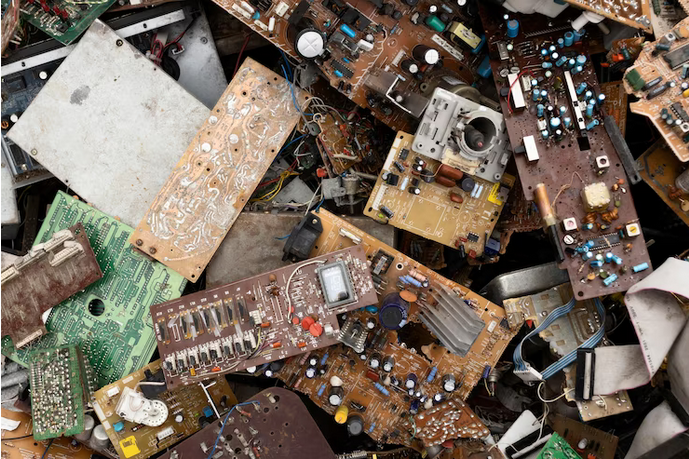Batteries have become an integral part of modern life, powering an array of devices from our smartphones and laptops to electric vehicles and renewable energy storage systems. However, with the growing reliance on batteries comes the pressing issue of their disposal. Traditional disposal methods, such as tossing old batteries in the trash, can lead to environmental hazards due to toxic chemicals and heavy metals they contain. Innovative approaches are needed to address this challenge and find sustainable alternatives to the traditional bin. In this guide, we will explore innovative ways to handle old battery disposal, emphasizing the importance of responsible practices for a cleaner and more sustainable future.
The Environmental Concerns of Battery Disposal
Before delving into innovative solutions, it's crucial to understand the environmental concerns associated with old battery disposal. Batteries, regardless of type, can contain hazardous materials like cadmium, lead, mercury, and lithium, posing a significant threat to the environment when not disposed of properly. These concerns include:
Toxic Leaching: When batteries end up in landfills, their toxic contents can leach into the soil and groundwater, contaminating ecosystems and affecting human health.
Resource Waste: Batteries often contain valuable resources such as lithium and cobalt. Discarding them without recycling means losing these finite materials and increasing the need for resource-intensive mining and manufacturing.
E-waste Accumulation: The improper disposal of batteries contributes to the mounting electronic waste (e-waste) problem, which presents challenges for recycling and responsible waste management.
Air Pollution: When batteries are incinerated or exposed to extreme temperatures, harmful emissions can be released into the atmosphere, contributing to air pollution and climate change.
Given these environmental concerns, it is clear that traditional disposal methods are not sustainable. Innovative approaches are required to tackle the growing problem of old battery disposal.
Innovative Solutions for Old Battery Disposal
Battery Recycling Programs: One of the most effective ways to handle old battery disposal is through recycling programs. Many regions and organizations have established battery recycling initiatives that collect and process used batteries. These programs facilitate the safe and efficient recovery of valuable materials like lithium, cobalt, and nickel, while also ensuring proper disposal of hazardous components.
Urban Mining: Urban mining involves extracting valuable metals from discarded electronics, including batteries. Innovative companies are using advanced techniques to recover metals from old batteries, reducing the need for traditional mining and helping to conserve valuable resources.
Circular Battery Design: Some manufacturers are adopting circular design principles, aiming to create batteries that are easier to disassemble, repair, and recycle. Designing batteries with modularity in mind allows for more straightforward resource recovery and reduces waste.
Reuse and Repurposing: Innovative organizations are exploring ways to give old batteries a second life by repurposing them for less demanding applications. For example, used electric vehicle batteries can be used for stationary energy storage systems, extending their usefulness.
Advanced Battery Chemistry: Researchers are continually developing new battery chemistries that are less toxic and more environmentally friendly. For example, solid-state batteries show promise for being safer and more recyclable than traditional lithium-ion batteries.
Biodegradable Batteries: Some researchers are working on creating biodegradable batteries that break down harmlessly in the environment. These innovative batteries use non-toxic materials and offer a sustainable alternative to conventional batteries.
Consumer Education: Raising awareness among consumers about the importance of responsible battery disposal is an innovative approach to tackling the problem. When people understand the environmental impact of batteries and how to recycle them, they are more likely to participate in recycling programs.
The Role of Innovation in Sustainable Battery Disposal
Innovation plays a pivotal role in addressing the challenges associated with old battery disposal. Here's how innovation contributes to a more sustainable approach:
Resource Conservation: Innovative recycling techniques and urban mining efforts are essential for conserving valuable resources like lithium, cobalt, and nickel. By recovering and reusing these materials, we reduce the need for resource-intensive mining operations.
Hazardous Material Management: Advanced technologies and processes allow for safer and more efficient handling of hazardous materials found in batteries, preventing environmental contamination and health risks.
Environmental Impact Reduction: Innovative battery chemistries and biodegradable designs can significantly reduce the environmental impact of battery disposal, from the production stage to the end of life.
Economic Opportunities: The recycling and sustainable disposal of batteries create economic opportunities, from job creation in the recycling industry to the development of new technologies and materials.
Behavioral Change: Innovation in communication and education strategies can drive behavioral change among consumers and businesses, encouraging responsible battery disposal and recycling practices.
Conclusion
The disposal of old batteries is a significant environmental concern, given the toxic materials and valuable resources they contain. Traditional disposal methods not only contribute to pollution but also waste finite resources. However, innovative approaches are emerging to address this challenge. Battery recycling programs, urban mining, circular battery design, advanced battery chemistry, and consumer education are among the innovative solutions that promise to make battery disposal more sustainable.
Innovation plays a crucial role in reducing the environmental impact of batteries throughout their lifecycle. By adopting and supporting these innovative practices, we can move beyond the bin and toward a more responsible and sustainable approach to old battery disposal. It is essential for individuals, businesses, and governments to embrace these innovations and work together to ensure that batteries, which power our modern world, do not become a burden for the environment and future generations to bear.





Comments